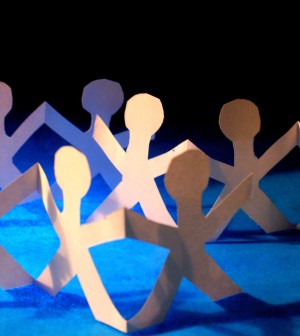- Could Your Grocery Store Meat Be Causing Recurring UTIs?
- Are You Making This Expensive Thermostat Error This Winter?
- Recognizing the Signs of Hypothyroidism
- 10 Strategies to Overcome Insomnia
- Could Artificial Sweeteners Be Aging the Brain Faster?
- Techniques for Soothing Your Nervous System
- Does the Water in Your House Smell Funny? Here’s Why
- Can a Daily Dose of Apple Cider Vinegar Actually Aid Weight Loss?
- 6 Health Beverages That Can Actually Spike Your Blood Sugar
- Treatment Options for Social Anxiety Disorder
IVF Won’t Raise Risk for Breast Cancer

Women who undergo in vitro fertilization (IVF) to boost their odds of having a baby aren’t at increased risk of breast cancer, according to Dutch researchers.
Their study of more than 25,000 women found no “significant increase in the long-term risk of breast cancer among women treated with these IVF regimens.”
A fertility expert believes the findings will ease patients’ concerns.
“As the number of women undergoing IVF continues to increase, it’s reassuring that we do not subject them to an increased risk of breast cancer,” said Dr. Avner Hershlag, chief of the Center for Human Reproduction at North Shore University Hospital in Manhasset, N.Y.
According to the Dutch research team, prior data has hinted that that certain hormones, including estrogens and progestogens, can affect breast cancer risk.
IVF procedures do cause levels of certain of these hormones to drop temporarily, while others may surge. For this reason, experts have speculated that IVF could affect women’s risk for breast cancer.
To help settle the matter, researchers led by Alexandra van den Belt-Dusebout, of the Netherlands Cancer Institute in Amsterdam, followed more than 19,000 women who underwent IVF between 1983 and 1995.
The women averaged 33 years of age when the study began, and underwent an average of between three and four IVF cycles.
By the time the women had reached age 54, Belt-Dusebout’s team compared their breast cancer rates to that of nearly 6,000 other women of similar age who had not undergone IVF.
The risk for breast cancer among the women who had IVF was similar to the risk of women who didn’t have IVF, the team reported July 19 in the Journal of the American Medical Association.
The cumulative rate of breast cancer was 3 percent for the IVF group, compared to 2.9 percent for the non-IVF group, the study showed.
The study’s authors also found that the type of fertility drugs the women received had no effect on their risk for breast cancer. Interestingly, women who had seven or more IVF cycles actually had a much lower risk for breast cancer than those underwent just one or two rounds of the treatment.
For his part, Hershlag said he wasn’t surprised by the findings.
“Since we now believe that it takes years for a clinically detectable cancer to develop, short exposure [usually about two weeks] to high estrogen levels in IVF should not make a difference in the natural history of breast cancer,” he explained.
Dr. Stephanie Bernik is a breast cancer expert and chief of surgical oncology at Lenox Hill Hospital in New York City. She said, “The question as to whether or not IVF increases the risk for future breast cancer is often asked, especially as more women are delaying pregnancy and IVF is becoming a very common occurrence.”
While the study results are encouraging, Bernik believes that they “need to be validated with studies designed to look at the relationship of breast cancer risk in women receiving the hormones for IVF.
“For now, the information is helpful to women trying to weigh the risks and benefits of IVF,” she added. “Women at a high risk for breast cancer may still need to be cautious about IVF and the high doses of hormones that are used.”
More information
The American Pregnancy Association provides more information on the risks and side effects of IVF.
Source: HealthDay
Copyright © 2026 HealthDay. All rights reserved.










